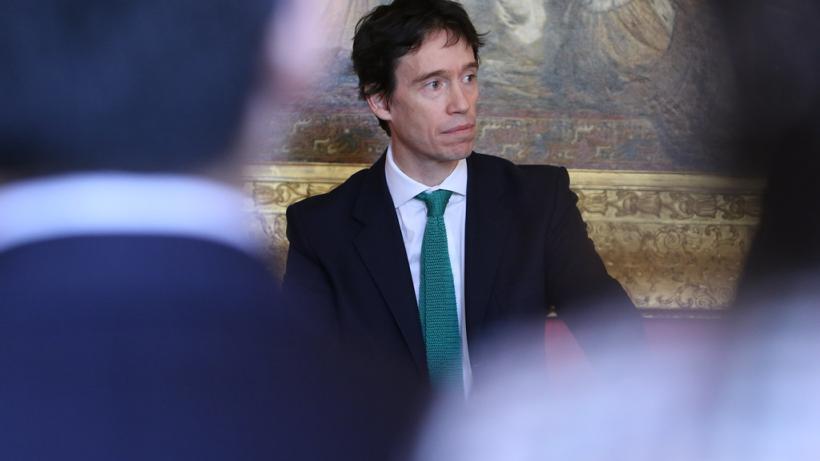
IGC Quick Clicks: DFID’s new leader and what it means for UK aid
On 1 May, UK Prime Minister Theresa May appointed a new Secretary of State for International Development. Rory Stewart, who was previously serving as Minister of State for Prisons, was appointed after a cabinet reshuffle that saw the previous Secretary, Penny Mordaunt, picked to be the country’s first female Defence Secretary.
What might this new leadership mean for the UK’s international development agenda? In this month’s edition of Quick Clicks, we take a look at initial reactions to Stewart’s appointment. Full disclosure: the IGC is majority funded by the Department for International Development (DFID).
Who is Rory Stewart?
Stewart, 46, started his career as a civil servant, joining the Foreign Office after university at Oxford, and has served as a Conservative MP since 2010. Fun fact, in his Oxford days, he tutored Prince William and Prince Harry during the summer.
He is perhaps best known globally for his 2005 New York Times bestselling novel The Places in Between, a travel memoir about his hazardous walk across Afghanistan in January 2002. The walk was completed mostly solo with only a dog accompanying him and approximately followed the footsteps of Babur, the first Emperor of Mughal India and the dog’s namesake.
Is he fit for the job?
For the most part, the UK aid community thinks he’s well qualified for the role in both knowledge and expertise, and Stewart has been firm in his commitment to the UK’s 0.7% of GNI aid spending target. Unlike his predecessors – Mordaunt and Priti Patel, both self-described aid spending skeptics – Stewart has strong international development credentials with stints as Minister of State for DFID and Minister of State for Africa, in the Iraq Coalition Provisional Authority, and founder of an NGO in Afghanistan under his belt.
Senior leaders at the One Campaign and World Vision UK, two of the country’s biggest development organisations, have expressed their confidence in Stewart putting UK aid on the right track.
What’s on the agenda?
Stewart’s first speech as Secretary for International Development focused on increasing private investment to unlock growth in Africa, pointing to London’s finance district and CDC Group, an institution he was once responsible for as DFID Minister, as key to doing so.
So far, Stewart also said he’d place tackling climate change as a top DFID priority and that maintaining the aid budget will be a key component to the government’s vision for a Global Britain post-Brexit. His significant experience working in countries affected by conflict and fragility including Iraq and Afghanistan will likely mean DFID continues to allocate at least 50%. Our report Escaping the fragility trap outlines recommendations for how DFID can spend these resources more effectively and better collaborate with other donors.
The Center for Global Development has outlined four opportunities for Stewart’s new leadership of DFID. Undoubtedly, one of Stewart’s major challenges will be navigating and defining Britain’s global role in a post-Brexit world, although aid may prove to be an important soft power tool for the government and a means to forge new partnerships with the EU.

